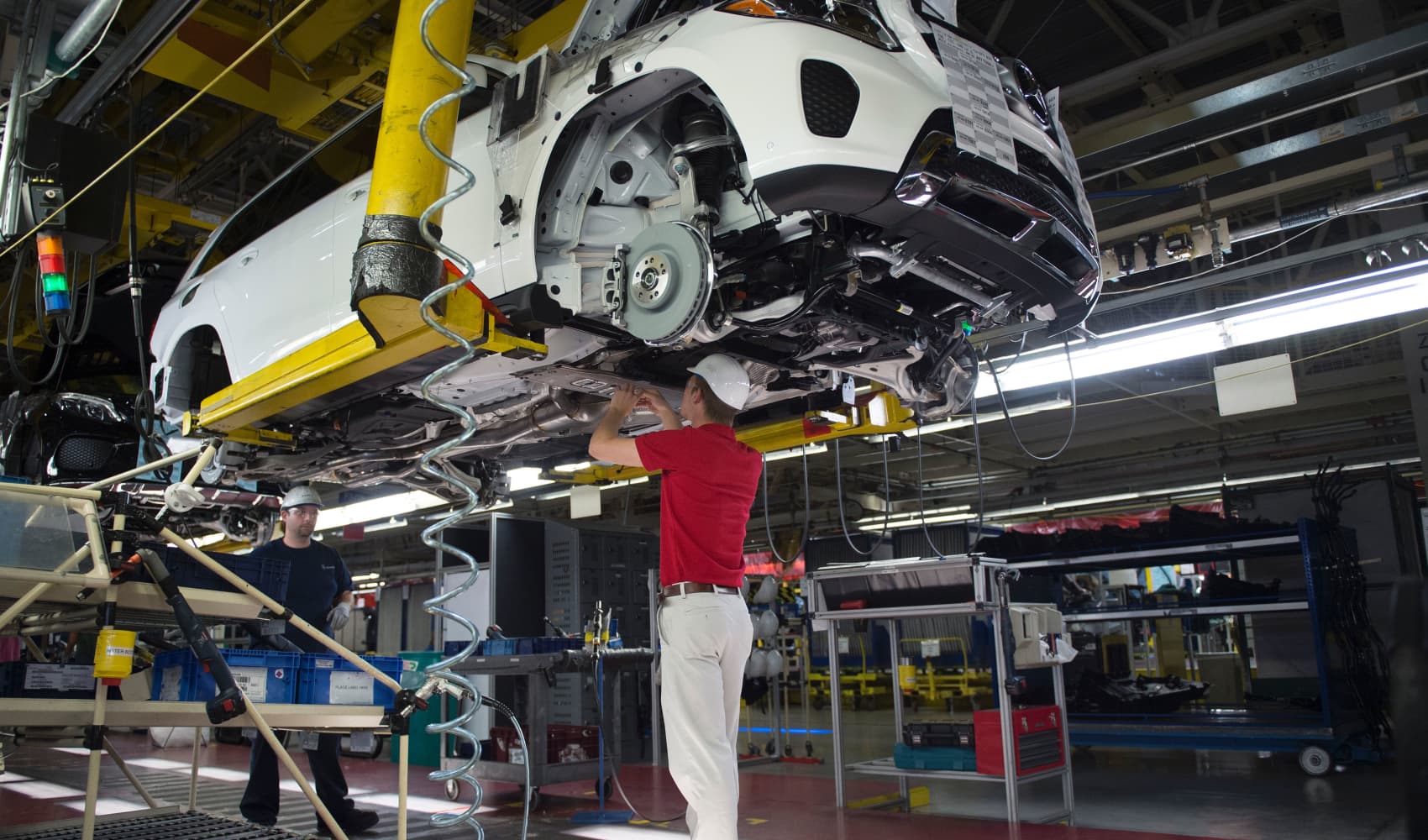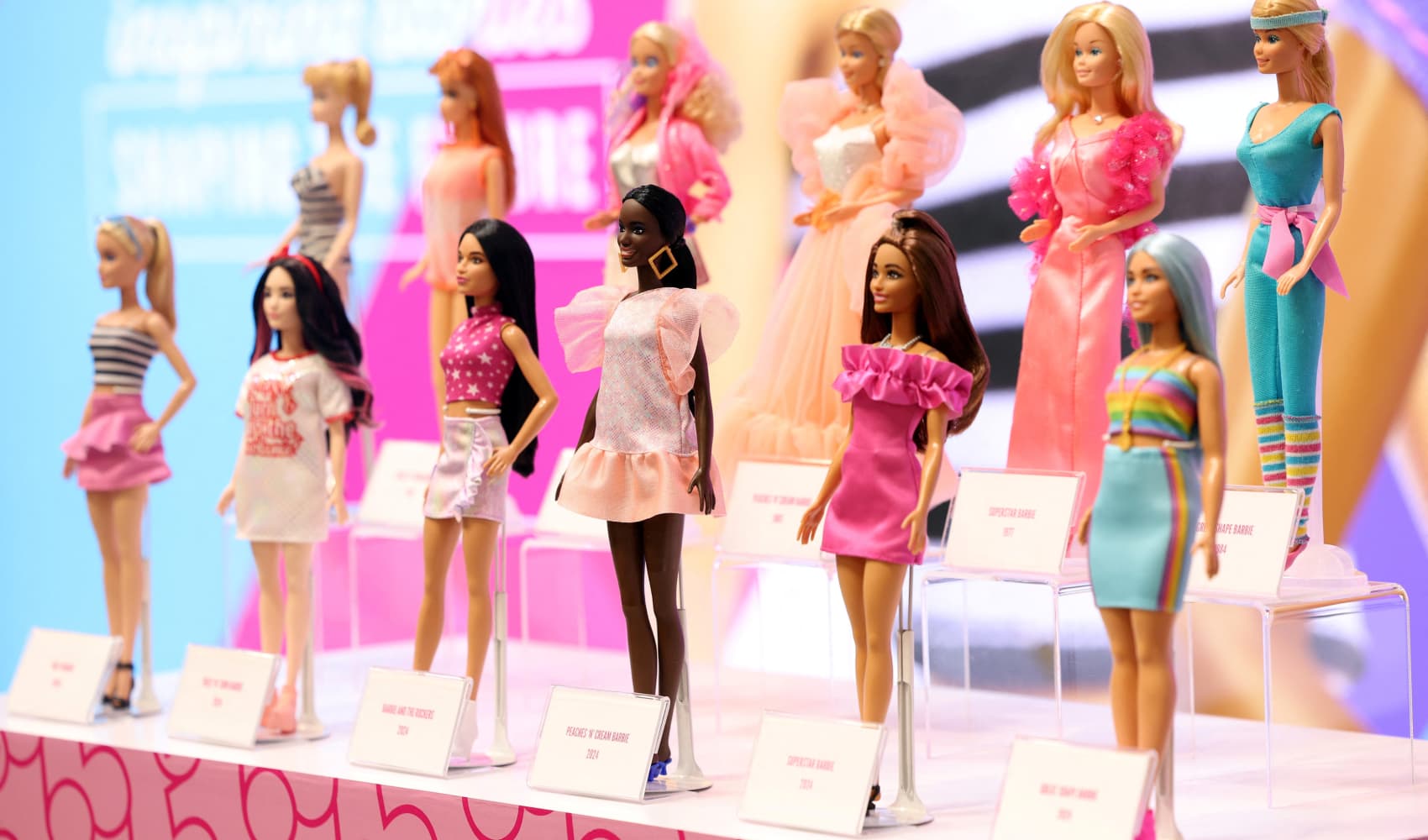Mercedes Benz Expands Alabama Plant: Trump Tariffs Impact?
Mercedes-Benz Alabama Plant: A Tariff-Dodging Triumph?
Introduction: Roll Tide, Roll Out the New Mercedes!
Alabama, the heart of Crimson Tide country, is about to get a little more German engineering. Mercedes-Benz has announced plans to add a new vehicle to its Tuscaloosa plant by 2027. But here's the kicker: this expansion comes amid the lingering shadow of former President Donald Trump's auto tariffs. Coincidence? Maybe. Strategically savvy? Almost certainly. Let's dive deep into what this means for Mercedes-Benz, Alabama, and the future of automotive manufacturing in the United States. Are we about to witness a masterful maneuver in the high-stakes game of global trade?
The Elephant in the Room: Trump's Tariffs
Remember the days of tariff threats and trade wars? Former President Trump's administration wasn't shy about using tariffs to try and reshape international trade. Auto tariffs, in particular, sent shivers down the spines of automakers around the globe. The idea was to incentivize companies to produce more vehicles in the U.S., creating jobs and boosting the domestic economy. But did it work exactly as planned? The jury's still out. Now, with Mercedes-Benz expanding its Alabama plant, the question is: did those tariffs play a role?
The Official Stance: "No Comment"
Mercedes-Benz isn't exactly shouting from the rooftops about the influence of tariffs. When asked directly, they declined to comment. Smart move, right? Why wade into a political debate when you can focus on the business at hand? But silence doesn't mean the tariffs had no impact. It simply means Mercedes-Benz is playing its cards close to its chest.
A "Core Segment" Vehicle: What Could It Be?
Mercedes-Benz is being tight-lipped about the specific vehicle coming to Alabama, only describing it as a "core segment" model. What does that even mean? Well, considering the Tuscaloosa plant primarily produces SUVs, it's a safe bet we're talking about another SUV or crossover. Think popular models like the GLE, GLS, or perhaps even a new electric SUV.
The SUV Stronghold: Tuscaloosa's Expertise
Tuscaloosa is Mercedes-Benz's SUV fortress in North America. They've been building SUVs there for decades, honing their expertise and building a skilled workforce. It makes perfect sense to add another SUV to the lineup. Why reinvent the wheel when you already have a winning formula?
Localization is Key: Getting Closer to the U.S. Customer
Mercedes-Benz emphasized that this move is about "getting even closer to the U.S. customer." What does that mean in practical terms? It means reducing transportation costs, shortening supply chains, and potentially responding more quickly to changing customer preferences. It's about being agile and responsive in a highly competitive market.
Supply Chain Resilience: A Post-Pandemic Priority
The pandemic exposed vulnerabilities in global supply chains. Automakers, in particular, struggled with chip shortages and other disruptions. Localization, like Mercedes-Benz's Alabama expansion, is a way to build more resilient supply chains and reduce reliance on overseas suppliers.
Alabama's Automotive Boom: More Than Just Football
Alabama has quietly become a major player in the automotive industry. In addition to Mercedes-Benz, companies like Hyundai and Honda also have significant manufacturing operations in the state. Why Alabama? A skilled workforce, attractive incentives, and a business-friendly environment all play a role. It's not just about football; it's about building cars, too!
Job Creation and Economic Impact: A Win for Alabama
The Mercedes-Benz expansion is undoubtedly good news for Alabama. It means more jobs, more investment, and a stronger local economy. It's a testament to the state's ability to attract and retain major manufacturers.
The Electric Vehicle Revolution: Is Alabama Ready?
The automotive industry is rapidly shifting towards electric vehicles (EVs). Is Mercedes-Benz's Alabama plant ready for this transition? Absolutely! The plant already produces the all-electric EQS SUV and EQE SUV. Adding another EV to the lineup would further solidify Alabama's role in the electric future.
Battery Production: The Next Frontier
The real game-changer in the EV world is battery production. Mercedes-Benz is investing heavily in battery manufacturing to support its electric vehicle ambitions. Could Alabama become a hub for battery production as well? It's certainly a possibility, and one that would further cement the state's position in the automotive industry.
Beyond Tariffs: The Bigger Picture
While tariffs may have played a role, there are other factors driving Mercedes-Benz's decision to expand in Alabama. The U.S. is a huge market for luxury vehicles, and producing cars locally makes good business sense. It's about long-term growth, not just short-term tariff avoidance.
A Global Strategy: Balancing Act
Mercedes-Benz operates in a global marketplace. They need to balance production capacity, manage costs, and respond to changing market conditions around the world. The Alabama plant is just one piece of a much larger puzzle.
The Future of Automotive Manufacturing: Innovation and Adaptation
The automotive industry is constantly evolving. From electric vehicles to autonomous driving, the pace of innovation is staggering. To succeed, automakers like Mercedes-Benz need to be agile, adaptable, and willing to invest in the future. The Alabama plant is a key part of that strategy.
The Human Element: Investing in the Workforce
Ultimately, the success of any manufacturing operation depends on its workforce. Mercedes-Benz needs to invest in training and development to ensure its employees have the skills needed to build the cars of the future. It's about empowering people and creating a culture of continuous improvement.
Conclusion: A Strategic Move, Regardless of the Motive
Mercedes-Benz's decision to add a new vehicle to its Alabama plant is a significant move, regardless of whether it was directly influenced by Trump's tariffs. It strengthens their presence in the crucial U.S. market, enhances supply chain resilience, and demonstrates a commitment to the future of automotive manufacturing. Alabama wins, Mercedes-Benz wins, and hopefully, U.S. consumers win, too. The automotive landscape is ever-changing, and this latest development proves that adaptability and strategic planning are the keys to staying ahead of the curve.
Frequently Asked Questions
-
Q: What type of vehicle is Mercedes-Benz planning to build in Alabama?
A: While the company hasn't revealed the specific model, it's described as a "core segment" vehicle. Given that the plant primarily produces SUVs, it's likely to be another SUV or crossover.
-
Q: How many jobs will this expansion create in Alabama?
A: Mercedes-Benz has not released specific numbers on job creation. However, any expansion of production typically leads to more employment opportunities in the region.
-
Q: Is this expansion related to the Inflation Reduction Act's EV tax credits?
A: While Mercedes-Benz hasn't directly linked the expansion to the Inflation Reduction Act, localizing production in the U.S. can help vehicles qualify for these tax credits, making them more attractive to consumers.
-
Q: What is the timeline for the new vehicle's production?
A: Mercedes-Benz plans to begin localizing production of the vehicle at its Tuscaloosa plant by 2027.
-
Q: How will this affect the price of Mercedes-Benz vehicles in the U.S.?
A: Localized production can potentially reduce transportation costs and other expenses, which could lead to more competitive pricing for U.S. consumers. However, many factors influence vehicle pricing.

